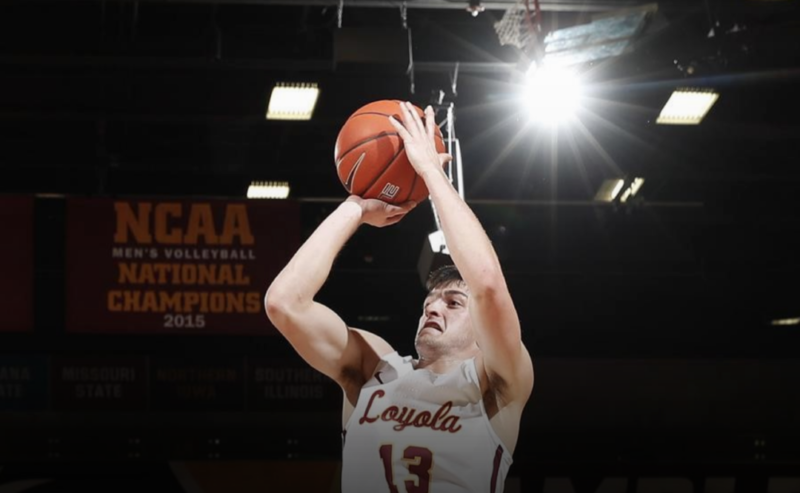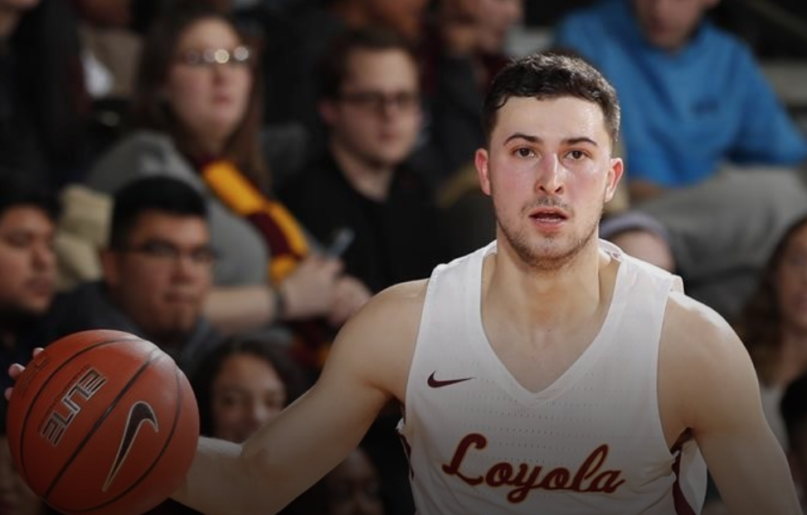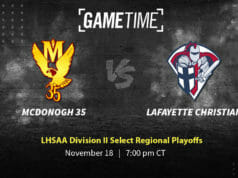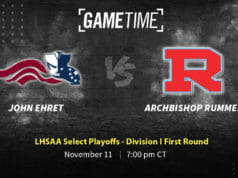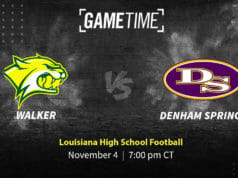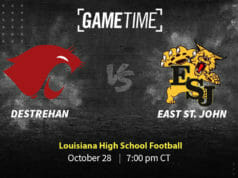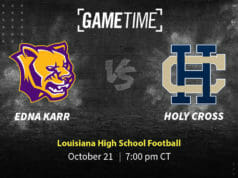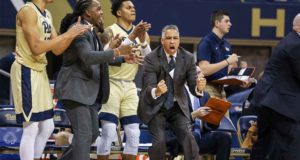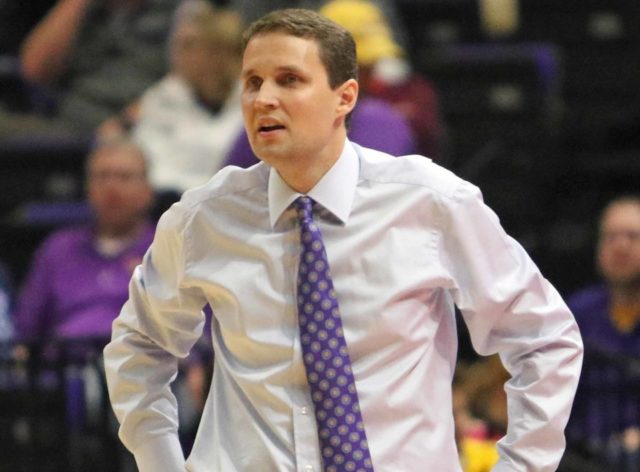
Perhaps no individual offers a more unique perspective on Loyola-Chicago’s captivating run from 11-seed to Final Four participant than LSU head coach Will Wade.
A key member on the coaching staff of the last 11-seed, VCU, to reach the Final Four, Wade now finds himself leading the program of the first 11-seed, LSU, to ever make this type of run.
We caught up with Wade to touch upon this Loyola Chicago story and its impact on the ground at LSU, along with his impressions on this Ramblers team as they aim to become the first team seeded nine or lower to ever win a national semifinal game.
Chris DiSano: After Loyola advanced, how has the vibe been at LSU this week? Has there been renewed talk of that 1986 run and what appreciation have you gained – even further – for that team?
Will Wade: Oh yeah, we’re on an email chain and we’ve talked about it. Coach [Dale] Brown sends out inspirational emails a couple of times per week. And one of his inspirational emails this week was about the 1986 team and some of the qualities that that team possessed that were similar to Loyola, for instance, unselfishness. So there’s certainly been some talk and it’s rekindled some memories for people down in Baton Rouge.
CD: Thinking back to your 2011 Final Four run at VCU, what is your fondest memory of that experience?
WW: The games and stuff are great but you often forget what an impact you make. The best memory for me was the ride to the airport when we left Richmond to go to the Final Four. They shut down in the interstate, there were people hanging off the overpasses… it looked like the President was in town. We had a clear path to the airport. They stopped traffic on the other side and people were on top of their cars. It was crazy. I still to this day have the dash-cam footage from the police cruiser that was leading the motorcade. It was really cool and you remember how it brought everybody together.
CD: As we focus on Loyola Chicago, how do you think the underdog mindset has fueled them based on your experiences, if at all?
WW: A lot of those guys take pride in beating name brands and it’s easy to get up for them. Now they’re [Loyola] a great team. They have some transfers that have been at some big time programs and come back and made Loyola a big time program. You take a lot of pride in being able to knock off teams with more name recognition than you have… you’re trying to get your name out there where you’ve been reading about these other guys all year long. You want to make a special name for yourself.
CD: You had many players, Jamie Skeen, others, on that VCU team, but Joey Rodriguez was as instrumental as anyone in your NCAA Tournament run. Is there any individual Loyola player, whether Clayton Custer or someone else, who has stood out to you?
WW: I do think it’s Custer in watching from afar. He seems to be the straw that stirs the drink sort of like Joey was for us. He seems to give them their attitude a little bit. He would be the guy who stands out to me. It’s tough when you’re not there every day to know all the personalities, but it seems like he’s got the “it” factor and many of the leadership qualities that Joey had for us.
CD: What has impressed you most about this Loyola team?
WW: They’re a good team and they didn’t get here by accident. They are a phenomenal defensive team, they’re in the gaps, forcing you to make two passes to be able to drive it and get past their initial wall at about 18 feet. So their half court defense stands out. Also their ball movement on offense. They do a great job moving it, sharing it, and passing it and they’re a very good shooting team. We were not a great shooting team [at VCU in 2011] but we shot it well in the NCAA Tournament. In fact, their Elite 8 game reminded me of our game against Kansas. We got out to a big lead, buried a bunch of threes… Loyola was able to keep their margin a lot better against Kansas State last weekend, whereas Kansas cut into it against us before we were able to pull away. But their half court defense is phenomenal. It’s the real deal. They do a great job of forcing you to shoot contested jump-shots.
CD: Last weekend ends with the Ramblers cutting the South Region’s nets. Take us through how this week is different in terms of logistics, etc. for them? Is there a “week of” experience that you know now having been through it that you wish you knew then?
WW: Oh yeah, we were just so happy to be there. The teams that have been there a bunch… you can tell… they go in the back entrance of the hotel and you never see ’em. We let our guys come through the lobby and things like that. We cut it out partly after we got there for a bit, but it was so crazy and such a new experience for all of us. Coach Smart did a great job, he called coach Billy Donovan and got a few tips on what to do, but you really have to be in almost total isolation all week to be able to win.
CD: As coaches, with the heightened media commitments of this week, what unique challenges does that bring from a preparation standpoint?
WW: Yeah, it’s certainly different because your practices are different and you have so many different obligations. There more time commitments. Even as assistants, you have to take on more because your head coach can’t fulfill every responsibility. It’s a tough balancing act. If I’m fortunate enough to go again, I’d certainly take care of what I needed to, but I’d have two assistants just strictly in charge of our team and making sure they are right. Then I’d have another assistant handle the media.
But even little things… like tickets… you get more tickets and you have to deal with family friends and uncles for your players and for yourself. There are more distractions and you need to get them handled early in the week, but you’re just so excited early in the week you still want to celebrate. So the little things end up hanging out there until later in the week and can distract from your preparation.
CD: Along those lines, teams seeded 9th or worse are 0-6 all time in the national semifinal. What does Loyola need to do this weekend to carve out its own spot in history?
WW: We played Michigan this year [at LSU] and they are a very good ball club. We played them out at the Maui Invitational. I think Loyola just needs to do what they do. They have to pack that defense in and force teams to play over the top. I think if they can get it to a half court game, an ugly game… the sight lines are different, the rims are different, it’s more difficult to shoot in the big dome. If they can play it in the 50s or low 60s that will help. Michigan is comfortable playing that way too, they’re a good defensive team. But if Loyola can make some plays – as they have all tournament – in the last five minutes of the game they’ll give themselves an opportunity to win.



